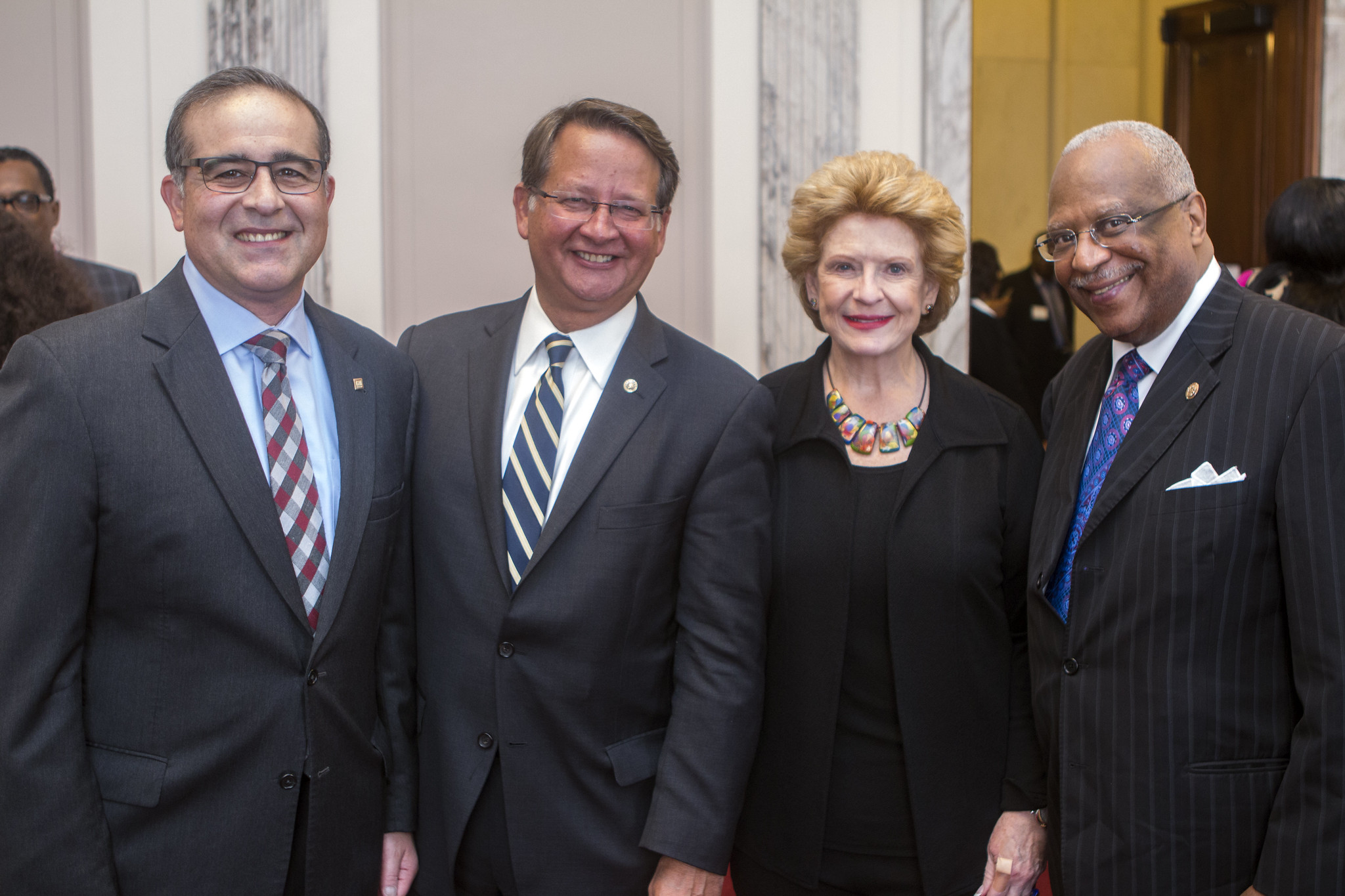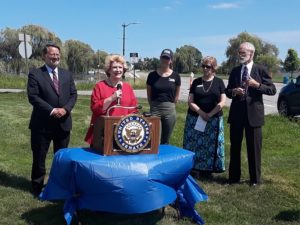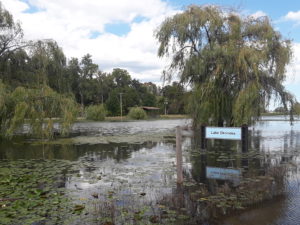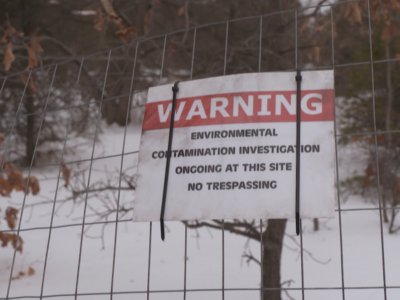
U.S. Sens. Debbie Stabenow and Gary Peters announced on Thursday legislation to renew and increase funding for the Great Lakes Restoration Initiative.
The GLRI, first introduced in 2009 to accelerate efforts to protect and restore the Great Lakes, is set to expire September 2021—the end of federal fiscal year 2021. This new legislation, Senate Bill 2295, would reauthorize it for another five years and increase funding by $25 million a year until it reaches $475 million in Fiscal Year 2026.
“Why? Because the needs just continue,” Stabenow said at a press conference on Belle Isle on Thursday. “We’re only at the beginning of what we need to do around Asian carp and protecting our waters. We have so many new challenges that relate to water levels and all of the other issues that are coming as a result of the climate crisis, so we need to be focused on protecting our waters and our Great Lakes.”
One of the bill’s main obstacles is U.S. President Donald Trump’s administration, which has more than once tried to cut funding to the Great Lakes in budget proposals.
The Great Lakes Restoration Initiative Act of 2019 was announced near the Lake Okonoka Habitat Restoration project, which is one of six projects on Belle Isle that are being or have been funded by the GLRI since the initiative started.
The Lake Okonoka project is almost done, according to David Howell, chairman of Friends of the Detroit River.
“We just need the permit for a culvert that’ll be just up the road that will allow that water to go from the (Blue Heron) Lagoon into the lake and back out to the Detroit River,” Howell said. “First time ever (in decades) there’s been fresh water running all the way through and back out.”
Along with Howell, Stabenow and Peters, Friends of the Rouge Executive Director Marie McCormick and Clinton River Watershed Council Executive Director Anne Brasie were also there to share about successful GLRI projects in each of their watersheds.
In Michigan alone, 880 projects have been funded by the GLRI, with $762 million spread out among a range of projects addressing invasive species, water runoff, algae blooms and more, Stabenow said.
“This is a program that has proven successful,” Peters said. “This is not speculative. We see the major changes that occur after this investment. We see the economic activity that follows as a result of it. So when you have a success and a success related to something as important as the quality of the Great Lakes, we should do more of it.”
The bipartisan legislation was written with Republican Sen. Rob Portman. Stabenow and Peters are both Democrats.
The goal is to have the legislation passed in the House and Senate in the fall, Stabenow said.
“It’s also important to share people’s stories about why they care about the Great Lakes,” she said. “They can do that through our website; share them with us so we can use them on the senate floor for instance, and then reaching out to House members in Michigan to make sure they are on board.”
A map of all Great Lakes Restoration Initiative projects is available online. A list of projects funded by Canada’s equivalent Great Lakes Protection Initiative also is available online.
Featured Image: Senators Stabenow and Peters greet constituents at the Congressional Black Caucus breakfast, Photo by the office of U.S. Senator Debbie Stabenow via flickr.com cc 2.0







